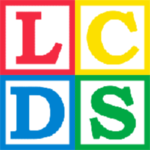[vc_row][vc_column][stm_title page_title_enable=”true” title_margin_b=”26px”][/stm_title][vc_column_text css=”.vc_custom_1632957401835{margin-bottom: 42px !important;}”]Self Directed Activities
- Writing & Art Centre: learning & coloring worksheets, drawing, painting, pasting, and cutting. Creative expression.
- Listening Centre: activities to increase attention span and an appreciation for music and stories.
- Block Centre: provides opportunities for large and small motor activities with blocks.
- Cars & Building Centre: provides opportunities for building social and fine motor skills and imaginative play.
- Manipulative Centre: activities with puzzles, small blocks and board games, activities to develop classification skills, ordering and observation skills.
- Doll House/Train Centre: provides opportunities for building social and fine motor skills and imaginative play.
- Playhouse: provides opportunities for building social, fine motor and large motor skills, imaginative and role play in a small scale house. The house may change throughout the year to become a restaurant, grocery store, doctor’s office, etc.
- Sandbox/Water table: the center may be filled with materials such as sand, water, beans, moon sand, sticky foam, etc. This provides sensory experiences involving measurement and investigation.
Snack/Conversation Time
- Children are seated together to stimulate conversation, foster friendship and good manners.
- Snack and snack procedures follow the Canada’s Dietary Guidelines, Allergy regulations and other regulations set forth by government licensing agencies.
- Snacks may include but are not limited to vegetables, fruits, sandwiches, muffins, cheese and crackers. Birthdays are celebrated in class throughout the year.
Teacher Directive Activities
- Visual, auditory and communication skills are developed through small group conversations and activities with the teacher.
- Math and science concepts and information about other topics of interest are presented to the children.
- Project participation encourages the development of visual and auditory communication skills. Fine motor skills are developed with the introduction of new materials and creative tools.
- Through a series of planned activities, the children acquire information about the world around them.
- Cooking days encourage fine motor skills and communication skills. Children are introduced to new tastes, smells and textures. The children are encouraged to practice healthy food habits and are introduced to simple food handling and hand washing procedures.
Clean-Up
- Teachers assist the children in putting away toys and materials used at free play centers.
- Teaches responsibility for their belongings and their actions.
- Teaches the children how to help each other.
- Develops cooperation and sharing skills.
- Staff will provide direction and guidance when necessary.
Circle Time
- To develop early literacy skills, such as letter recognition, letter sounds and sight words.
- To develop early math skills, such as number recognition, number order, simple pattern recognition.
- To develop early recognition of time through the daily calendar and daily activity visual cards.
- To develop an interest in books and story-telling.
- To develop listening, memory and communication skills.
Departure
- We have a final circle time to review what was presented in class, to hand out projects and other work, and to say “Good Bye”.
- Students are dismissed directly to their parents or guardians.
[/vc_column_text][stm_single_image img_id=”5190″ img_size=”full”][/vc_column][/vc_row]
